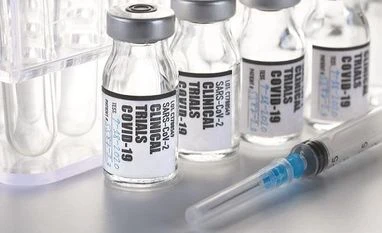A vaccine against COVID-19 can cover priority groups in India by June next year if inoculation is quickly ramped up to roughly the same level as the 1 million coronavirus tests conducted each day in the country, Fitch Solutions said on Monday.
"India's role in the global COVID-19 vaccine rollout will be significant both as a recipient of the medicine as well as a producer," Fitch said in a report.
India, it said, has one of the largest vaccine manufacturing capacities in the world (including the largest vaccineproducer Serum Institute India, SII) and has secured authorisation to mass-produce the AstraZeneca, Novavax andGamaleya Research Institute vaccines.
With a population of 130 crore (and 9.4 crore over 65-year-olds), the domestic vaccination drive will be the largest in the world.
"The country has a good track record of such drives with masses of the population regularly gaining inoculation for various diseases such as polio and cholera," it said.
India's vaccine rollout will begin in first quarter of 2021 (January to March), with frontline healthcare workers and individuals over the age of 50 years gaining priority.
Also Read
Fitch said the government aims to vaccinate some 25 crore people over six-to-eight months, which is "a lofty goal".
"However, if India can quickly ramp up vaccinations to roughly the same level as the 1 million (10 lakh) COVID-19 tests it conducts each day, then we expect coverage across priority groups can be achieved by June 2021," it said.
Risks to this outlook include the sheer scale of the project and with relatively weak institutions and healthcare infrastructure, these challenges could result in a slower rollout than expected, it added.
Access to COVID-19 vaccines is set to vary significantly across Asia depending on the advance purchase agreements a given country has reached with vaccine developers.
Developed markets have generally purchased access to vaccines from Pfizer, Moderna and AstraZeneca, smaller countries with strong healthcare systems will have an advantage in rolling out vaccines.
"Vaccine access for emerging markets is likely to be more varied with a larger role for supply from China and Russiaand their state-developed vaccine candidates. We note that some markets have already begun mass vaccinations with limited Phase III trial data available," Fitch said.
It said multiple COVID-19 vaccines are expected by the end of first quarter of 2021.
The first COVID-19 vaccine approval (based on Phase III data) was announced on December 2, 2020 by the UK's medicine regulator MHRA.
"We expect further approvals from various national regulators and for different vaccines over late 2020 and throughout 2021 as candidates reach clinical endpoints," it said adding many of the vaccines use the same approach of targeting the spike protein of the virus structure - an approach that has shown to be successful so far.
The initial distribution of COVID-19 vaccines, it said, is likely to be skewed towards wealthier nations in line with advance purchase agreements (APAs).
"We believe this is largely due to the ability to pay and the commercially focussed approach adopted by the vaccine developers which will be the first to gain approval," it said. "This theme also applies to Asia where some countries have secured access to vaccines while others have not."
For countries with confirmed supply, vaccinations are set to begin with priority populations made up of frontline healthcare workers, populations over 65 years of age, and those with underlying health conditions. Epidemiological data show that these groups (along with 50-65-year-olds) make up around 99 per cent of the preventable mortality from COVID-19 and a large proportion of hospitalisations.
"We expect that, as these populations gradually reach protection, governments eager to return to economic normality will look to begin easing restrictions," Fitch said. "Different countries will enact this easing at different paces depending on the progress of vaccine rollout.
(Only the headline and picture of this report may have been reworked by the Business Standard staff; the rest of the content is auto-generated from a syndicated feed.)
)